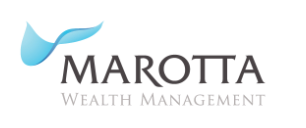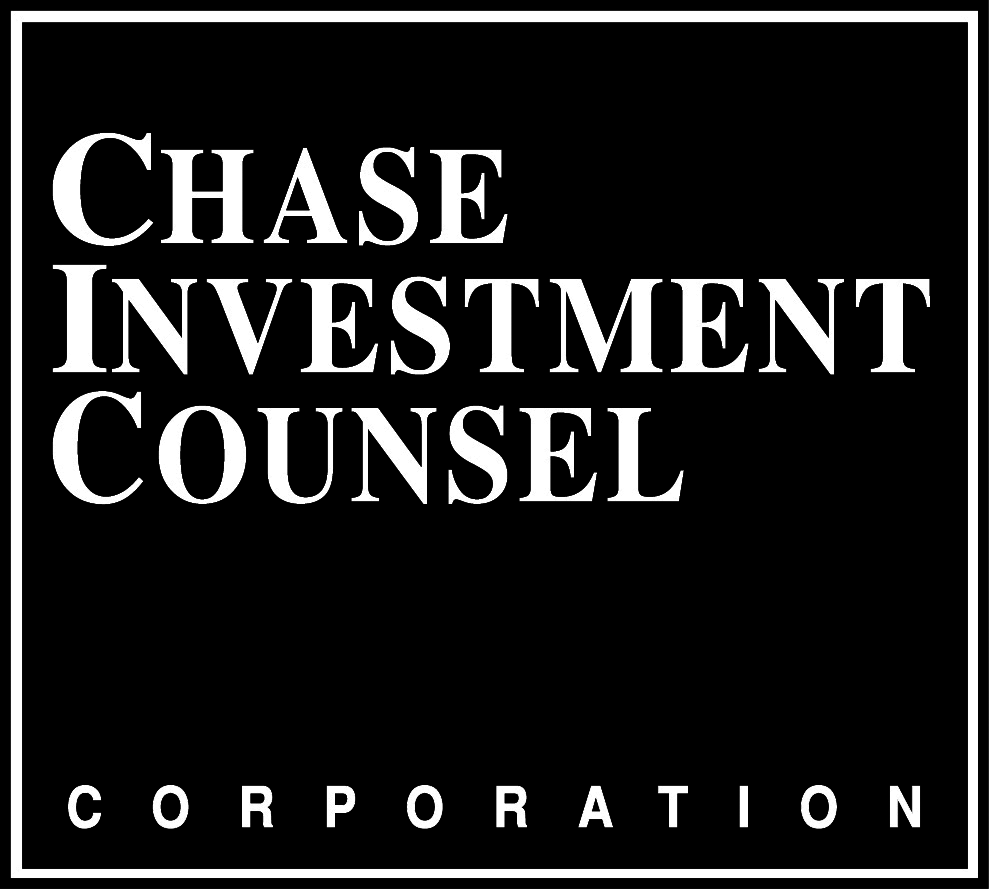Finding a Top Financial Advisor Firm in Charlottesville, Virginia
To help you find a financial advisor in Charlottesville, Virginia, we compiled this list of the top firms in the city. We reviewed company records and SEC filings to gather information about each firm's investment strategies, investment minimums, client services and more. If you don’t have a financial advisor yet, finding one doesn’t have to be hard. SmartAsset’s free tool matches you with vetted financial advisors who serve your area, and you can have a free introductory call with your advisor matches to decide which one you feel is right for you. If you’re ready to find an advisor who can help you achieve your financial goals, get started now.
Find a Fiduciary Financial Advisor
We match nearly 50,000 people with financial advisors per month. Get connected to an advisor that serves your area today.| Rank | Financial Advisor | Assets Managed | Minimum Assets | Financial Services | More Information |
|---|---|---|---|---|---|
| 1 | Morris & Wells Wealth Management  Find an Advisor Find an Advisor | $847,034,114 | No set account minimum |
| Minimum AssetsNo set account minimumFinancial Services
|
| 2 | A.N. Culbertson & Company, Inc.  Find an Advisor Find an Advisor | $704,356,347 | $1,000,000 |
| Minimum Assets$1,000,000Financial Services
|
| 3 | Marotta Wealth Management, Inc.  Find an Advisor Find an Advisor | $603,847,208 | Varies based on account type |
| Minimum AssetsVaries based on account typeFinancial Services
|
Let us help match you with up to three vetted fiduciary financial advisors.Answer a few questions to get matched. | |||||
| 4 | Chase Investment Counsel Corporation  Find an Advisor Find an Advisor | $452,198,390 | No set account minimum |
| Minimum AssetsNo set account minimumFinancial Services
|
| 5 | Solitude Financial Services, Inc.  Find an Advisor Find an Advisor | $283,963,291 | No set account minimum |
| Minimum AssetsNo set account minimumFinancial Services
|
| 6 | Grand Strategy Capital, LLC  Find an Advisor Find an Advisor | $137,741,182 | $50,000 |
| Minimum Assets$50,000Financial Services
|
| 7 | Emergent Financial Services, LLC  Find an Advisor Find an Advisor | $110,401,000 | No set account minimum |
| Minimum AssetsNo set account minimumFinancial Services
|
| 8 | Sturman Wealth Advisors  Find an Advisor Find an Advisor | $97,665,969 | No set account minimum |
| Minimum AssetsNo set account minimumFinancial Services
|
| 9 | Aria Wealth Partners  Find an Advisor Find an Advisor | $100,501,878 | No set account minimum |
| Minimum AssetsNo set account minimumFinancial Services
|
What We Use in Our Methodology
To find the top financial advisors in Charlottesville, we first identified all firms registered with the SEC in the city. Next, we filtered out firms that don't offer financial planning services, those that don't serve primarily individual clients and those that have disclosures on their record. The qualifying firms were then ranked according to the following criteria:
-
![]() AUMFirms with more total assets under management are ranked higher.
AUMFirms with more total assets under management are ranked higher. -
![]() Individual Client CountFirms who serve more individual clients (as opposed to institutional clients) are ranked higher.
Individual Client CountFirms who serve more individual clients (as opposed to institutional clients) are ranked higher. -
![]() Clients Per AdvisorFirms with a lower ratio of clients per financial advisor are ranked higher.
Clients Per AdvisorFirms with a lower ratio of clients per financial advisor are ranked higher. -
![]() Age of FirmFirms that have been in business longer are ranked higher.
Age of FirmFirms that have been in business longer are ranked higher.
All information is obtained through public records and is updated annually after the firms’ form ADV filing. This list may include firms that have a business relationship with SmartAsset, in which SmartAsset is compensated for lead referrals. Such relationships have no impact on our rankings, and firms are included and ranked based strictly on the above criteria. SmartAsset is not a client of the aforementioned firms, and did not receive compensation for including any of the firms on the aforementioned list.
Morris & Wells Wealth Management
Morris & Wells Wealth Management sits atop our list of the top financial advisors in Charlottesville. Founded in 1975, Morris & Wells is the second-longest tenured firm on this list. Clients include individuals, families, corporate retirement plans, trusts, estates and foundations. Members of the Morris & Wells team hold several financial credentials, including the Certified Financial Planner™ (CFP®) and Chartered Financial Analyst (CFA) designations.
The firm operates on a fee-only basis, charging quarterly fees based on a percentage of assets under management, with no separate commissions or compensation from the sale of financial products. There is no stated account minimum, though fees apply regardless of account size.
Jack Darrell started the firm as sole proprietor in 1975, at which time it was known as John Stewart Darrell & Co. In 2012 it became Darrell & King, LLC. As of Jan. 1, 2023, it became Morris & Wells Wealth Management.
The firm builds and manages customized stock and bond portfolios, tailoring allocations to each client’s needs and preferences. Clients may place restrictions on holdings, such as avoiding certain industries. In addition to direct investments in individual securities, the firm may recommend exchange-traded funds (ETFs) or mutual funds when appropriate.
Morris & Wells evaluates potential investments by applying several forms of analysis. The process considers both broader economic forecasts and details specific to individual companies. From this review, the firm identifies the main factors likely to influence an investment’s performance, such as earnings growth, changes in valuation multiples and dividend payments. After assessing these drivers, the firm decides whether to purchase or sell a security.
A.N. Culbertson & Company
A.N. Culbertson & Company has cultivated a client base of about 300 since its founding in 1993. It’s one of the more exclusive firms on this list, as it has a required minimum account size of $1 million. The firm may decide to waive this minimum at its discretion, though, as more than half of its individual clients are below the high-net-worth threshold. The firm also maintains advisory relationships with high-net-worth individuals, pension plans, businesses and charities.
A.N. Culbertson & Company is a fee-only firm. It has a few financial advisors on staff who hold the Chartered Financial Analyst (CFA), certified public accountant (CPA) and personal financial specialist (PFS).
A.N. Culbertson & Company first opened for business back in 1993. Today, the firm provides wealth management services combining investment management and financial planning. The firm develops strategies based on clients’ objectives, risk tolerance, time horizon, and liquidity needs, then monitors and rebalances portfolios as needed. Its planning services cover areas such as retirement, tax, estate, insurance and education funding, though the firm does not provide tax or legal advice.
A.N. Culbertson & Company typically assembles client portfolios using a mix of investments. This is done to ensure that your funds are diversified throughout various areas of the market. The firm tends to invest in equities, corporate debt securities, mutual funds, exchange-traded funds (ETFs), certificates of deposit (CDs), municipal securities and U.S. government securities.
The firm employs fundamental analysis when it comes to evaluating securities. Fundamental analysis is the attempt to discern a company or fund’s intrinsic economic value by analyzing "fundamental" indicators like its balance sheet, management and other financial documents, rather than focusing only on the movement of its market price.
Marotta Wealth Management
Marotta Wealth Management has one of the largest advisory staffs of any firm on this list. The firm's team includes such certifications as Certified Financial Planner™ (CFP®), chartered financial analyst (CFA), accredited wealth management advisor (AWMA) and accredited investment fiduciary (AIF).
The firm works with an equal number of indivividuals and high-net-worth individuals, as well as a smattering of retirement plans and charities. The firm has variable minimum requirements that depend on the investment services you’re looking for:
- "Comprehensive" level: $1 million minimum account size or $2,500 minimum quarterly fee
- "Collaborative" level: $400,000 minimum account size or $1,000 minimum quarterly fee
- "Do-It-Yourself" level: no minimum account size or minimum quarterly fee
Marotta Wealth Management has been serving its clients for more than decades since it was established in 2000. This firm's goal is to take a holistic approach to the management of each client's finances. As such, it offers both investment management and comprehensive financial planning services. For clients who don't require such a vast range of services, the firm also provides a "Do-It-Yourself" service which includes access to investment management offerings and rebalances.
Marotta Wealth Management primarily uses ETFs, mutual funds, closed-end funds, money market funds, certificates of deposit (CDs), individual stocks and individual bonds to construct investment portfolios for each client. The exact combination of these securities will naturally depend on the client's investment goals and tolerance for risk. This firm relies on modern portfolio theory (MPT), among other methods of analysis, to guide its investment advice.
Strategies focus on long-term efficiency, risk management and periodic rebalancing, with limited use of individual securities and a general avoidance of hedge funds, private offerings or speculative trading.
Chase Investment Counsel Corporation
Chase Investment Counsel Corporation is a fee-only practice that provides investment management and financial planning services to individuals, families, businesses and institutional clients. The firm works with professionals, retirees, and those experiencing financial transitions such as inheritance, divorce or business sales.
Services begin with a review of a client’s goals, financial situation, and risk tolerance, followed by the creation and monitoring of an investment strategy. The firm also provides support for portfolio reviews, estate and gift tax planning, and consulting on private placements and alternative investments. Separately managed accounts are subject to a $10,000 minimum annual fee, though there is no stated minimum asset requirement.
Chase Investment Counsel Corporation was founded in 1957, making it the oldest firm on this list. Advisors on staff hold the Certified Financial Planner™ (CFP®), Chartered Financial Analyst (CFA), chartered market technician (CMT) and investment advisor certified compliance professional (IACCP) designations.
The firm manages portfolios using a team-based approach, applying a bottom-up analysis to identify growth companies with strong fundamentals and attractive valuations. Its philosophy is growth at a reasonable price, with portfolios typically holding 30 to 55 stocks. Strategies include large-cap, mid-cap and all-cap growth approaches, along with dividend-paying stocks and covered call writing for income-focused clients.
The firm also advises the Chase Growth Fund, which follows the same all-cap growth strategy. Asset allocation may include fixed income alongside equities, depending on client needs.
Solitude Financial Services
Solitude Financial Services is a small fee-only financial advisor firm. As a fee-only operation, the firm's sole form of compensation is the fees that clients pay. On the other hand, a fee-based firm would be anyone that earns both client-paid fees and third-party commissions for things like insurance product sales.
There is no set account minimum for new clients of Solitude Financial, athough there is a minimum annual fee of $1,200 for financial planning services. The firm's entire client base is made up of individuals, those both with and without a high net worth.
The firm provides what it calls “financial life management,” a service that combines investment management with ongoing financial planning. This process helps clients define and prioritize goals such as retirement, education funding and estate planning. Advisors use planning software to evaluate cash flows and net worth, create portfolios aligned with client objectives and guide decisions about how best to save and allocate resources over time. The firm also offers hourly consulting to family members of clients when needed.
Solitude Financial Services has been in business since 2006. The firm is owned by Gene Kowalski, who is also its founder and lead advisor. Kowalski joined the Air Force in 1985 and has a degree in Aeronautical Engineering, though he made his shift to the financial space in 2005.
The firm employs a long-term, buy-and-hold investment philosophy, relying on strategies such as passive investing and broad diversification. Portfolios are generally built with ETFs, mutual funds, individual stocks and bonds and cash instruments. Solitude may also use simple options strategies, such as covered calls and puts, to manage risk. Its investment approach emphasizes fundamental analysis, occasionally supplemented by technical analysis, and is informed by the principles of Modern Portfolio Theory.
Grand Strategy Capital
Grand Strategy Capital is a fee-only firm that offers services such as investment strategy, asset allocation, financial planning, regular portfolio monitoring, risk management and the creation of personal investment policies. The firm has a relatively small client base made up of individuals, high-net-worth individuals and at least one charity.
The firm, which has a $50,000 minimum account balance, has an accredited portfolio management advisor (APMA) and a certified private wealth advisor (CPWA) on staff. GSC has been in business since 2010.
Its financial planning covers areas such as retirement, tax concerns, education funding, debt management and insurance needs.
The firm’s investment approach combines fundamental analysis, which studies a company’s financial health and prospects, with technical analysis, which reviews past price and trading data to identify patterns. Portfolios may include mutual funds, equities, bonds, ETFs, real estate, REITs, private placements and government securities. Strategies can involve long- and short-term purchases as well as options writing.
Emergent Financial Services
Founded in 2017, Emergent Financial Services divides its services into two main categories: individual and institutional. Individual services are available to both high-net-worth and non-high-net-worth individuals, as the firm currently maintains advisory relationships with both. Institutional clients of the firm include most notably businesses, as well as government entities and charitable organizations.
As a fee-only firm, the entirety of Emergent's compensation comes from client-paid fees.
For individuals, services include analyzing financial circumstances, building asset allocation models and managing investments. For institutions, the firm specializes in fixed-income strategies tailored to cash flow needs, investment policies and benchmarks. The firm has one Chartered Financial Analyst (CFA) on staff.
When you become a client of Emergent Financial Services, the firm will start by providing you with a questionnaire about yourself. This will entail answering questions about your current financial situation, income needs, ultimate financial goals and risk tolerance. Once you return your responses, the firm will determine which of its asset allocation models is best suited to your needs.
Before your money is invested according to the model, the firm will discuss things with you to ensure you are comfortable with the decisions. Then, you and your advisor will develop a more detailed investment plan that will focus on the specific securities that will occupy space in your portfolio. Portfolios are typically built using mutual funds and exchange-traded funds, with equities and bonds included as appropriate. For institutions, investments focus on high-quality fixed-income securities.
Once implemented, your portfolio will be reviewed on a quarterly basis, with rebalances being completed on an as-necessary basis.
Sturman Wealth Advisors, founded in 2022, is a registered investment advisory firm that provides wealth management, investment management and financial planning services. The firm works with individuals, high-net-worth individuals and retirement plans.
Sturman Wealth's services include developing investment strategies, constructing and monitoring portfolios, retirement account guidance, participant account management and financial planning in areas such as retirement, education savings, personal savings, and charitable giving. Clients are not required to meet a minimum account size.
Like a majority of the firms on this list, Sturman Wealth firm follows a fee-only structure. It is compensated directly by clients and does not receive commissions or other compensation from selling investment products.
The small team at Sturman Wealth includes two Certified Financial Planners™ (CFP®), one of whom is also an accredited investment fiduciary (AIF) and another who is an enrolled agent (EA).
Sturman Wealth constructs portfolios primarily with diversified, low-cost mutual funds and ETFs, while also using individual stocks and bonds when appropriate. The firm applies fundamental analysis in its selection process and generally takes a long-term approach to investing, though it may make shorter-term adjustments to rebalance portfolios or respond to market conditions. Independent managers may also be utilized to complement client strategies, with oversight from the firm.
Aria Wealth Partners
Aria Wealth Partners, founded in 2024, wraps up our list of the top financial advisors in Charlottesville. Aria Wealth provides wealth advisory, financial planning and consulting services to a pool of clients that made up of individuals, high-net-worth individuals and businesses. The firm assists with investment management, estate and tax planning, charitable giving, wealth transfer, business succession and family legacy strategies, often coordinating with clients’ attorneys, accountants and other professionals.
The firm does not impose a strict asset minimum for advisory accounts but charges a financial planning minimum of $2,500 per plan. Aria Wealth is fee-based, as its advisors may receive commissions from insurance or annuity sales in addition to advisory fees, which can create conflicts of interest. However, the firm and its advisors have a fiduciary duty to act in clients' best interests.
Aria Wealth’s investment philosophy draws on Modern Portfolio Theory, seeking to build portfolios that balance risk and return by diversifying across multiple asset classes. Its strategies incorporate long-term and short-term purchases and may include equities, fixed income securities, mutual funds, ETFs, options, U.S. government securities, real estate investment trusts and alternative investments such as limited partnerships.
